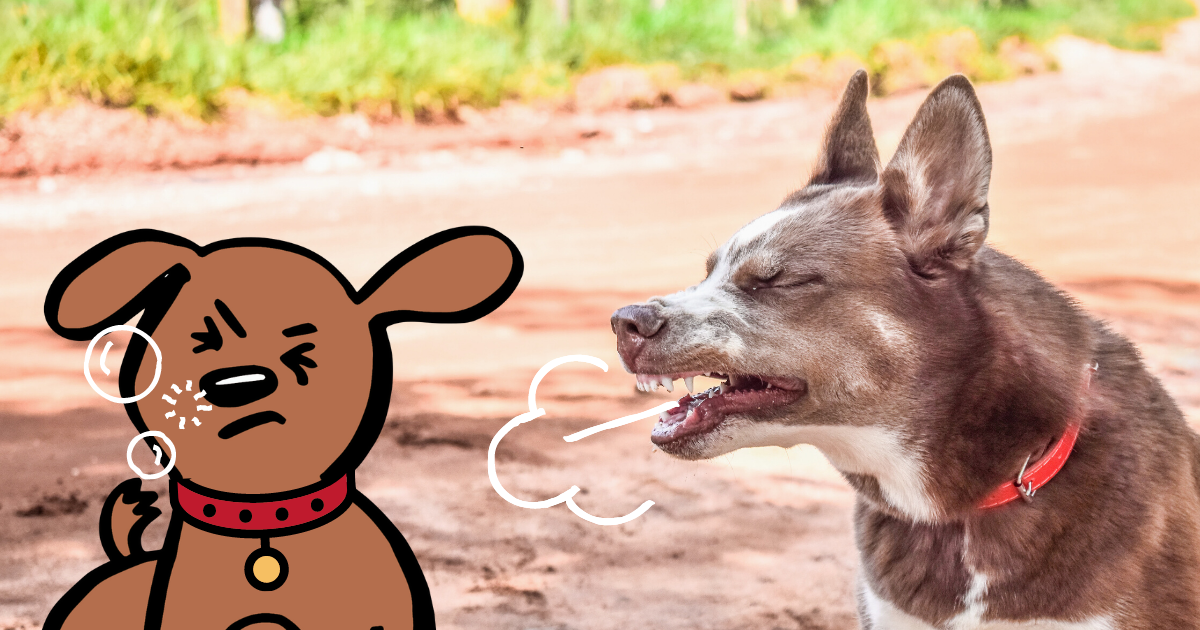
Reverse Sneezing In Dogs
July 21, 2023As a dog owner, it's common to be concerned about the health and well-being of your furry friend. One issue that can cause worry for some dog owners is reverse sneezing. But what exactly is reverse sneezing, and should you be concerned if your dog experiences it? In this blog post, we'll explore reverse sneezing in dogs and provide guidance on what to do if your dog experiences it.
What Is Reverse Sneezing?
Reverse sneezing, also known as paroxysmal inspiratory respiration, is a respiratory condition that is relatively common in dogs. It's called "reverse" sneezing because it is the opposite of a regular sneeze. During a reverse sneeze, your dog will inhale rapidly and repeatedly through their nose, making a snorting or gasping sound.
The exact cause of reverse sneezing is not fully understood, but it is thought to be a reflexive response to irritation or inflammation of the soft palate or throat. Some dogs may be more prone to reverse sneezing than others, including brachycephalic breeds (dogs with short snouts) and smaller dogs.
Should I Worry About Reverse Sneezing?
Typically, reverse sneezing is not a matter of worry. It is a common condition and usually resolves on its own within a few seconds to a minute. However, if your dog experiences frequent or prolonged episodes of reverse sneezing, it may indicate an underlying health condition, such as allergies, nasal mites, or a respiratory infection. You should consult your veterinarian for a proper diagnosis and treatment.
What Should I Do If My Dog Does Reverse Sneezing?
Here are the steps you can take if your dog experiences reverse sneezing:

- Keep calm and provide reassurance to your dog that everything is alright.

- Gently massage their throat to help them relax and breathe more easily.

- Cover their nostrils with your hand for a few seconds, which can help them swallow and clear their airway.

- Encourage your dog to swallow by offering them a small amount of water or a treat.

- Avoid sudden movements or loud noises that can startle your dog and worsen the episode.

- If your dog experiences frequent or prolonged episodes of reverse sneezing, or if you notice any other symptoms such as coughing or difficulty breathing, take them to the vet for an evaluation.

- Your veterinarian can perform a physical exam and recommend any necessary tests or treatment to help manage or treat the underlying cause of the reverse sneezing.

- You can also give your dog supplements like salmon oil to keep them strong and healthy.
Salmon oil is a popular supplement for dogs, and it can have various health benefits, including helping to manage and reverse sneezing episodes. Here's how salmon oil can help if your dog reverse sneezes:

- Omega-3 fatty acids, found in salmon oil, possess properties that can reduce inflammation. Reverse sneezing is often caused by irritation or inflammation of the soft palate or throat, and omega-3 fatty acids can help reduce this inflammation, decreasing how constantly and how intense reverse sneezing episodes occur.
- Omega-3 fatty acids are also beneficial for overall respiratory health. By supplementing your dog's diet with salmon oil, you can help support their respiratory system and reduce the likelihood of respiratory infections or other conditions that can trigger reverse sneezing.
- In addition to its anti-inflammatory properties, salmon oil can help keep your dog's immune system healthy and robust. A healthy immune system can help your dog fight off infections and reduce the likelihood of developing respiratory conditions that can lead to reverse sneezing.
Our salmon oil for dogs is made from quality ingredients and it will surely be loved by your fur babies!
Conclusion
Reverse sneezing is a common and usually harmless condition in dogs. However, if you have concerns or your dog experiences frequent or prolonged episodes, it's essential to consult your veterinarian for a proper diagnosis and treatment. You can ensure that your beloved pet remains healthy and content for many years by providing appropriate care and attention.
